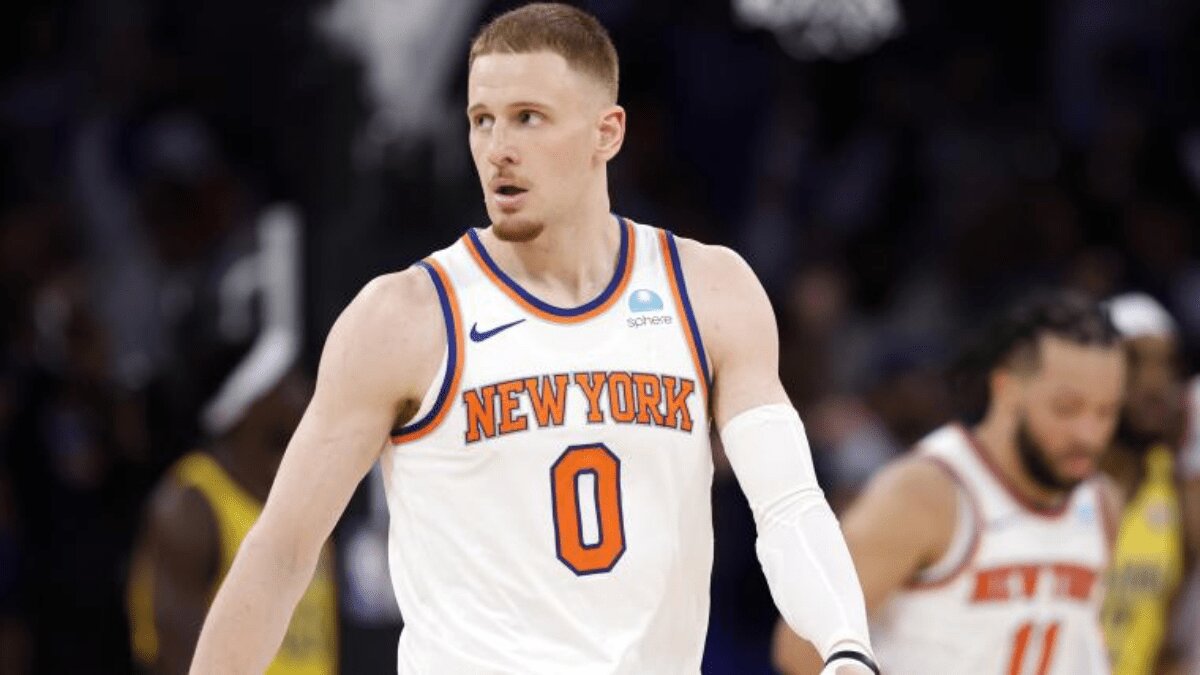The New York Knicks have just made their second major trade in three months, sending Julius Randle, Donte DiVincenzo, and a protected first-round pick to the Minnesota Timberwolves in exchange for Karl-Anthony Towns. While landing Towns is a significant win for the Knicks, it comes with the cost of losing DiVincenzo, who was a key player for the team.
DiVincenzo was a standout shooter last season, ranking third in the NBA for three-pointers made. He played with grit and determination, significantly exceeding the expectations set by his four-year, $47 million contract with the Knicks. His departure is more than just a loss of shooting talent; it risks upsetting the team’s chemistry and depth, which were pivotal to their success last year.
Now, the Knicks are betting that the addition of Towns and Mikal Bridges—both excellent shooters—will fill the gap left by DiVincenzo. Bridges is expected to take over DiVincenzo’s starting position, and Towns will bring his own shooting ability as a versatile center. This could open up more driving lanes for players like Jalen Brunson.
However, DiVincenzo’s unique style of play, especially how quickly he could shoot from deep, won’t be easy to replace. He had a knack for making quick cuts to find open shots and was exceptional at shooting off dribble hand-offs, keeping defenses on their toes.
Defensively, DiVincenzo was a valuable asset, even if he sometimes faced tough matchups against elite players. With Bridges and OG Anunoby on the roster, DiVincenzo could have served as a key third defender, able to create steals and turnovers. His defensive skills would have added to the Knicks’ already strong lineup.
DiVincenzo brought a toughness to the team that they will miss, as noted by ESPN and MSG analyst Alan Hahn. Playing in New York isn’t easy, and DiVincenzo consistently rose to the occasion, averaging 17 points per game during the playoffs with a strong three-point shooting percentage. He hit crucial shots in pivotal moments, like that big three-pointer in the playoffs or his clutch shooting against the Pacers. His competitiveness played a major role in the team’s identity, contributing significantly to the “Nova Knicks” culture alongside Brunson and Josh Hart.
With the trade, the Knicks’ depth takes a hit. Towns will likely start at center, and Hart will move into the starting lineup, leaving a once-deep bench that included Hart, DiVincenzo, Miles McBride, and Precious Achiuwa significantly weaker. Now, they’ll need to find a new player to fill the gap in the rotation.
Moving on from DiVincenzo’s salary is also a blow. He had become a bargain at around $12 million per season, which is crucial in today’s NBA, especially under the second apron salary rules. Having reliable role players locked into friendly contracts is key, which is part of why Brunson accepted a team-friendly deal.
Now, the Knicks find themselves thinner and with fewer options to bring in good players, especially with Towns’ contract averaging $55 million a year and Bridges likely getting an extension soon. This means the team will face tougher roster decisions down the line.
The Knicks clearly understood the risks when they traded DiVincenzo at the height of his value after a standout season. They may have anticipated some regression in his shooting or worried he wouldn’t thrive in a reduced role off the bench.
Despite these challenges, the Knicks have the talent to compete for a championship this year. However, they now have to work on building a new rotation and identity to make it happen.


